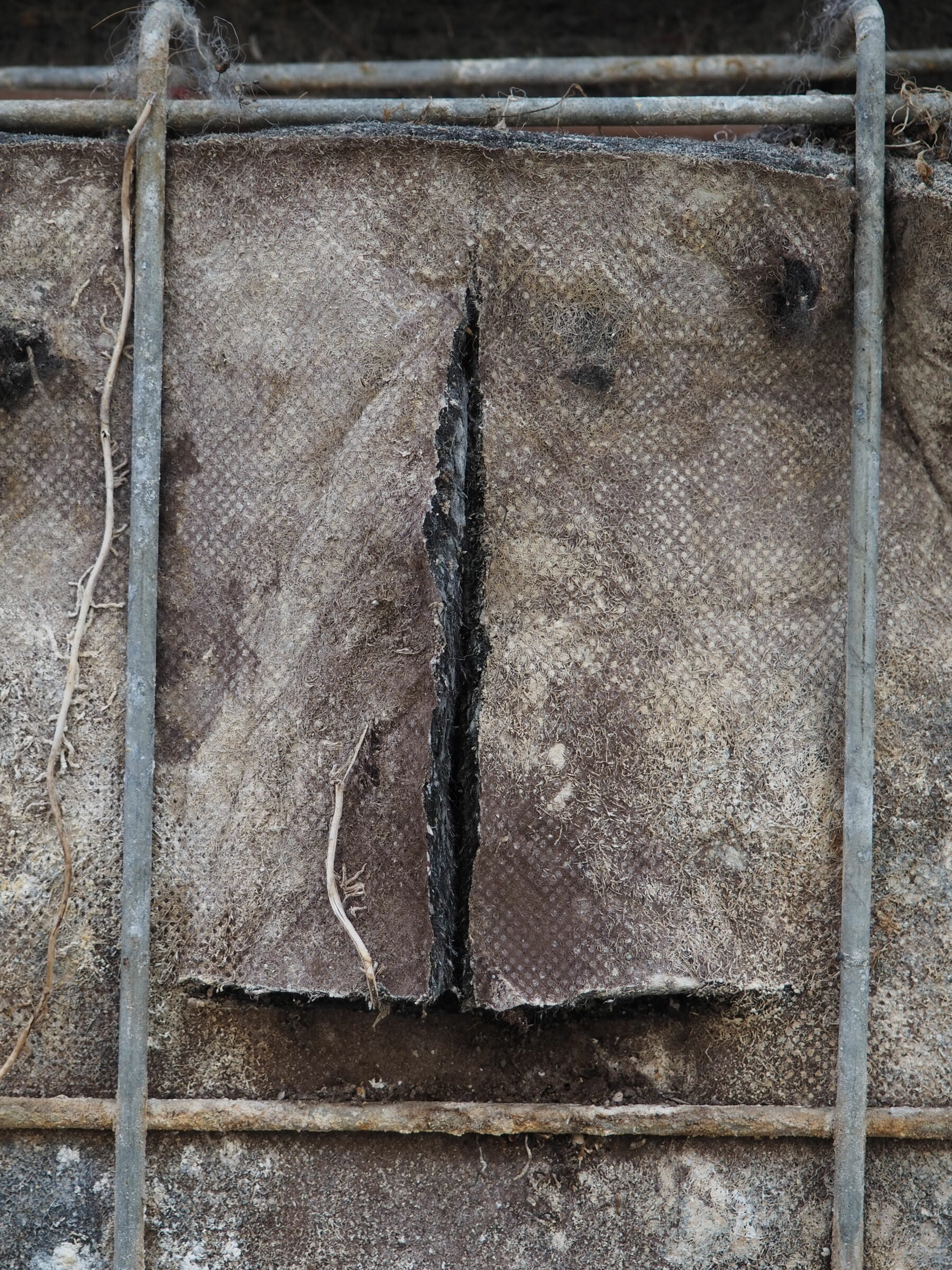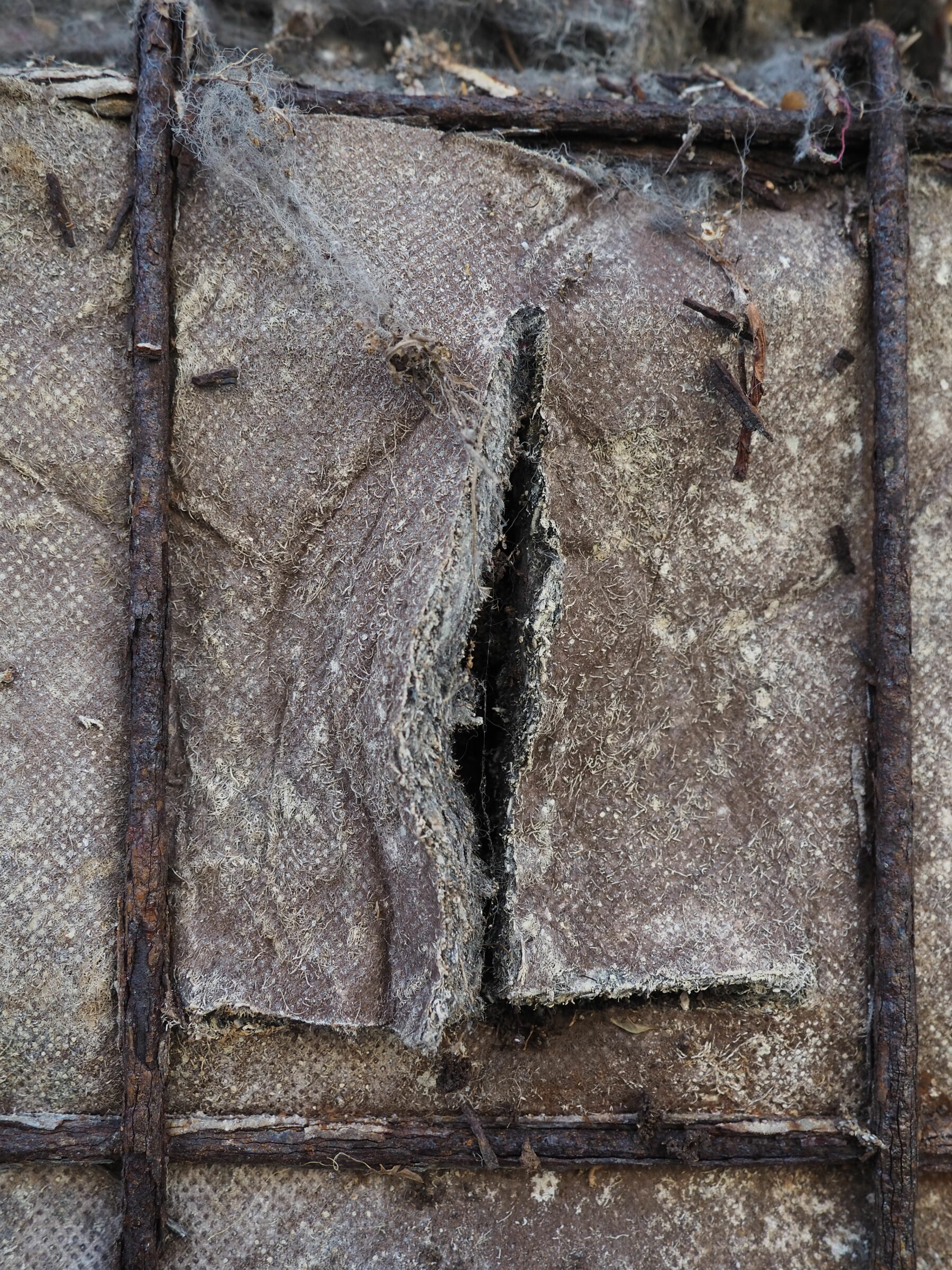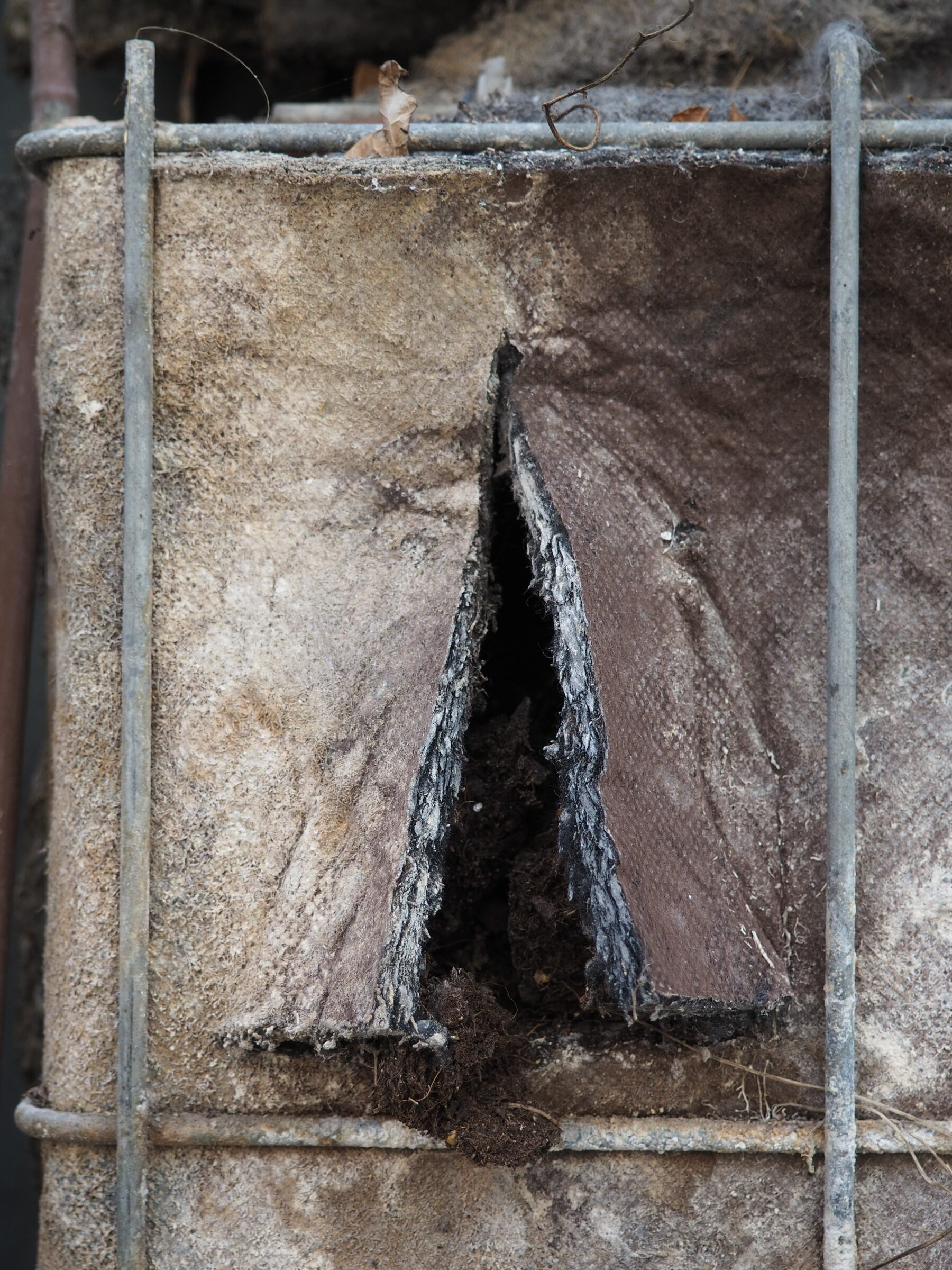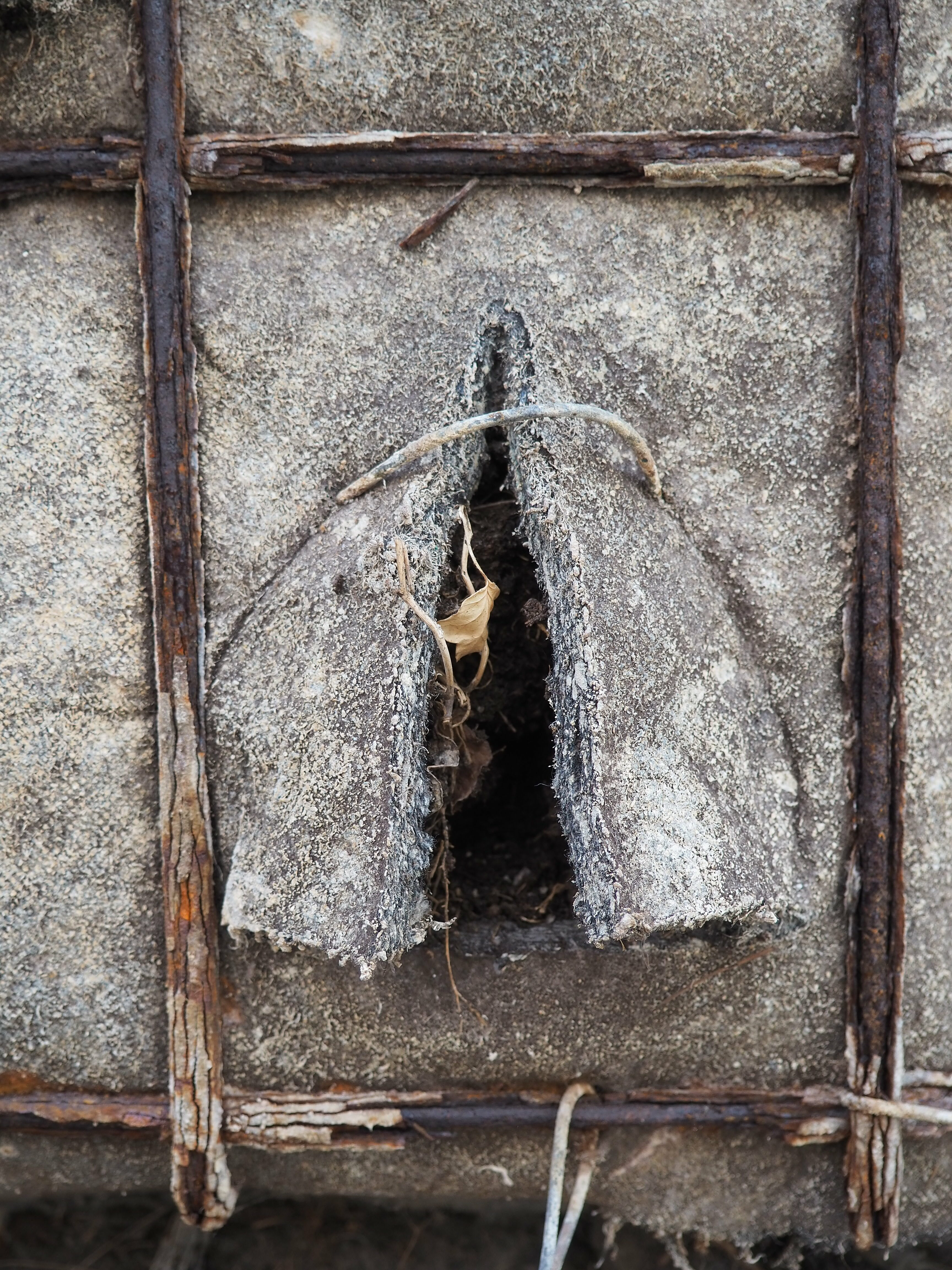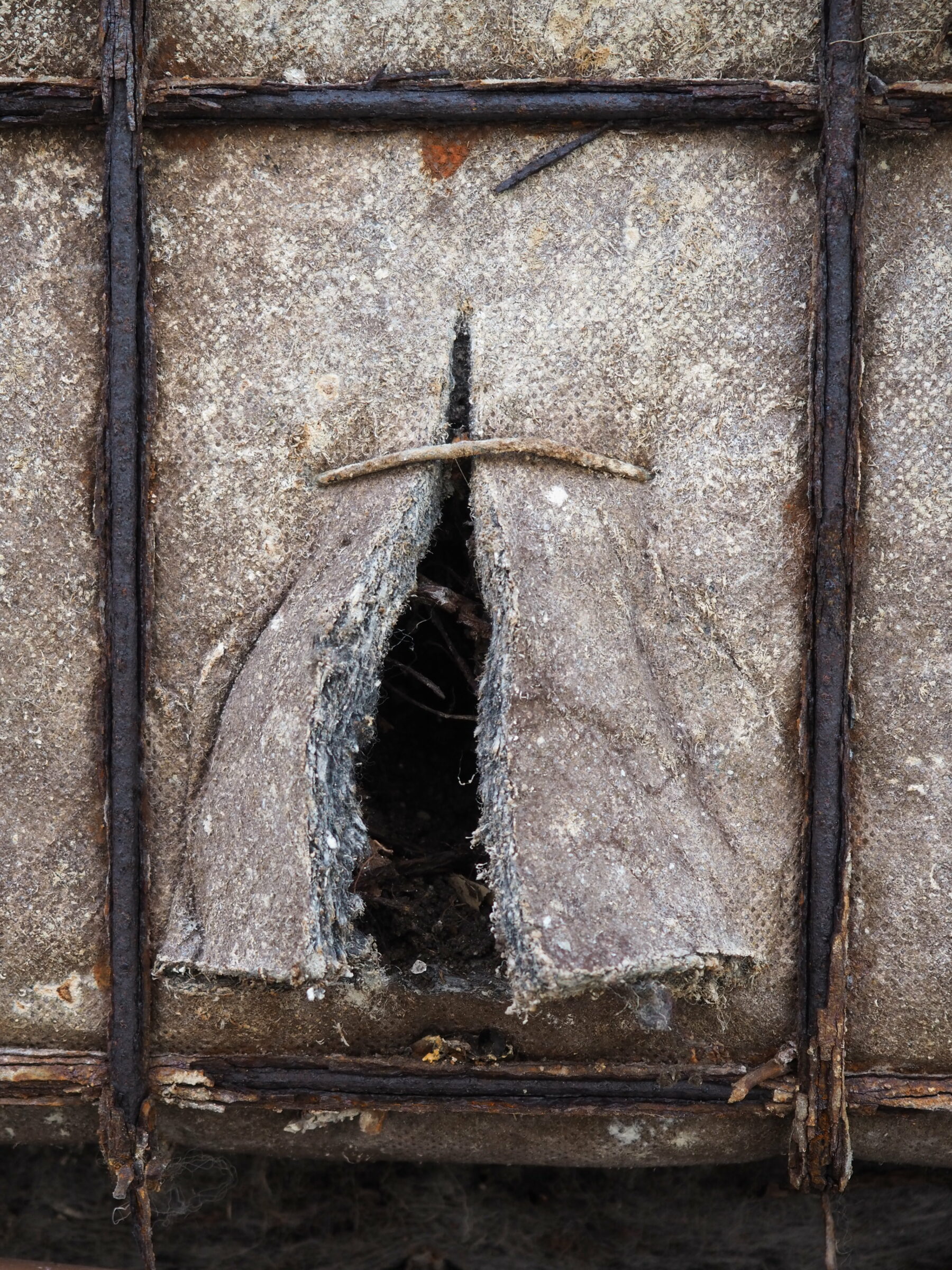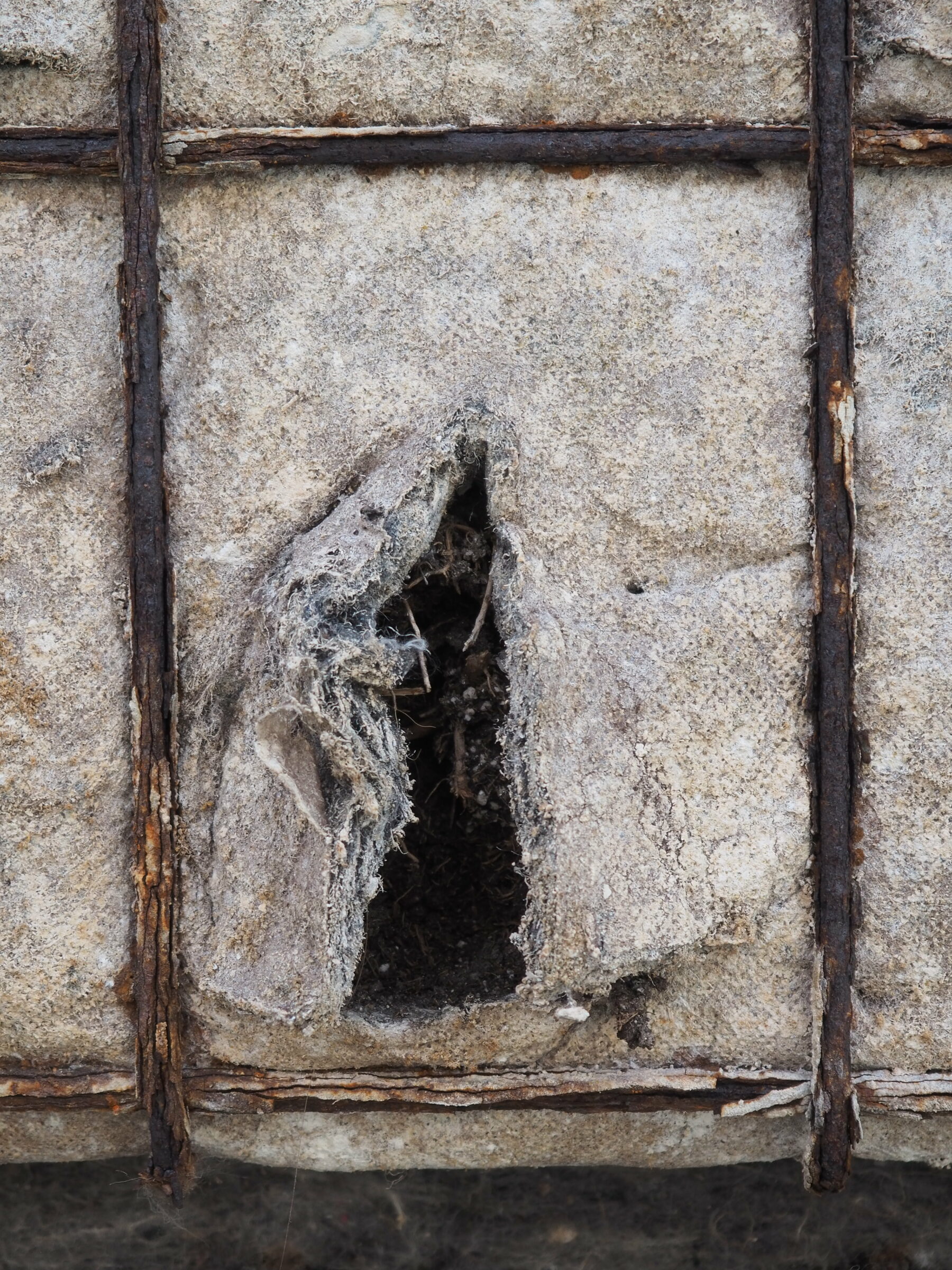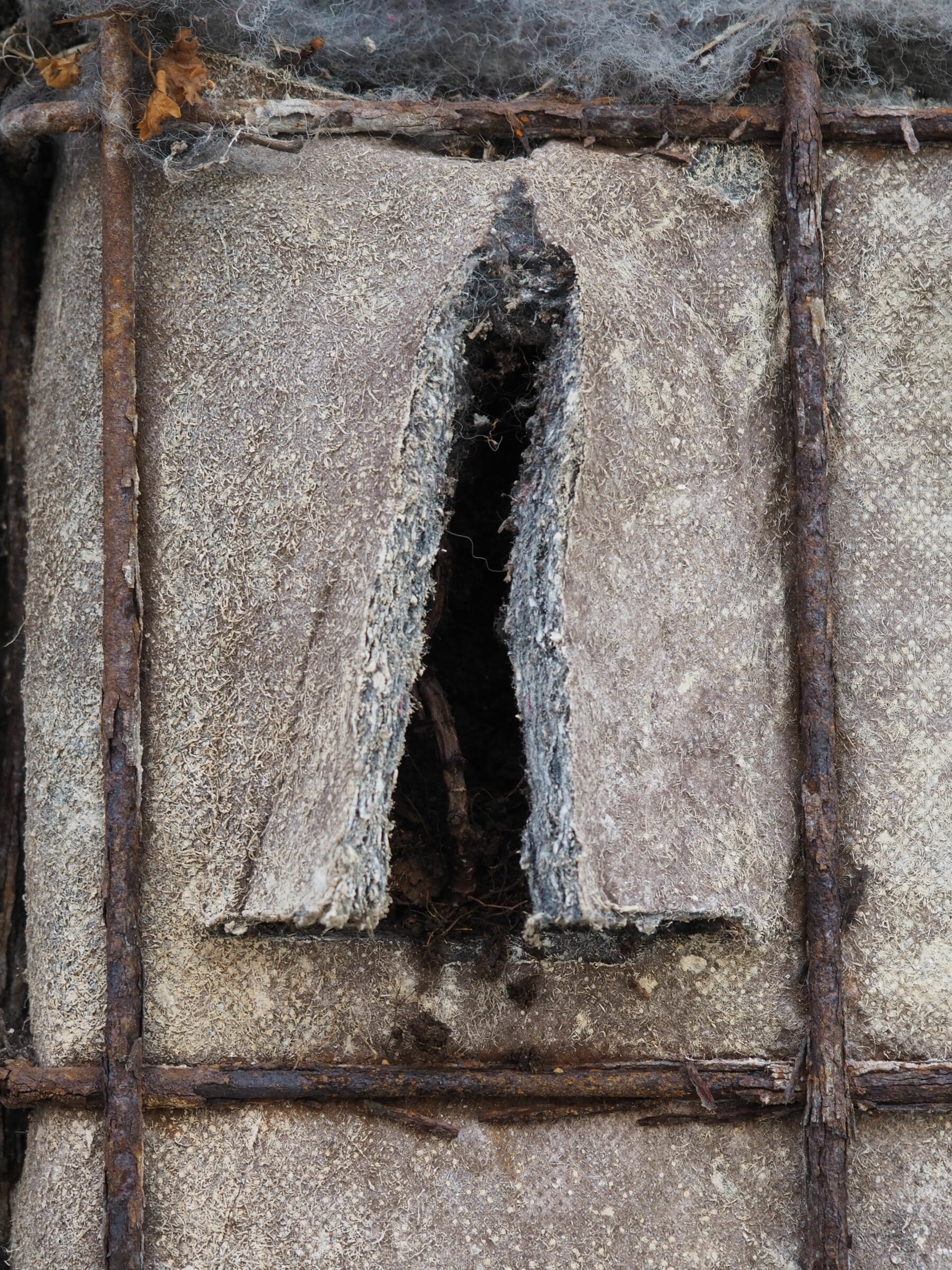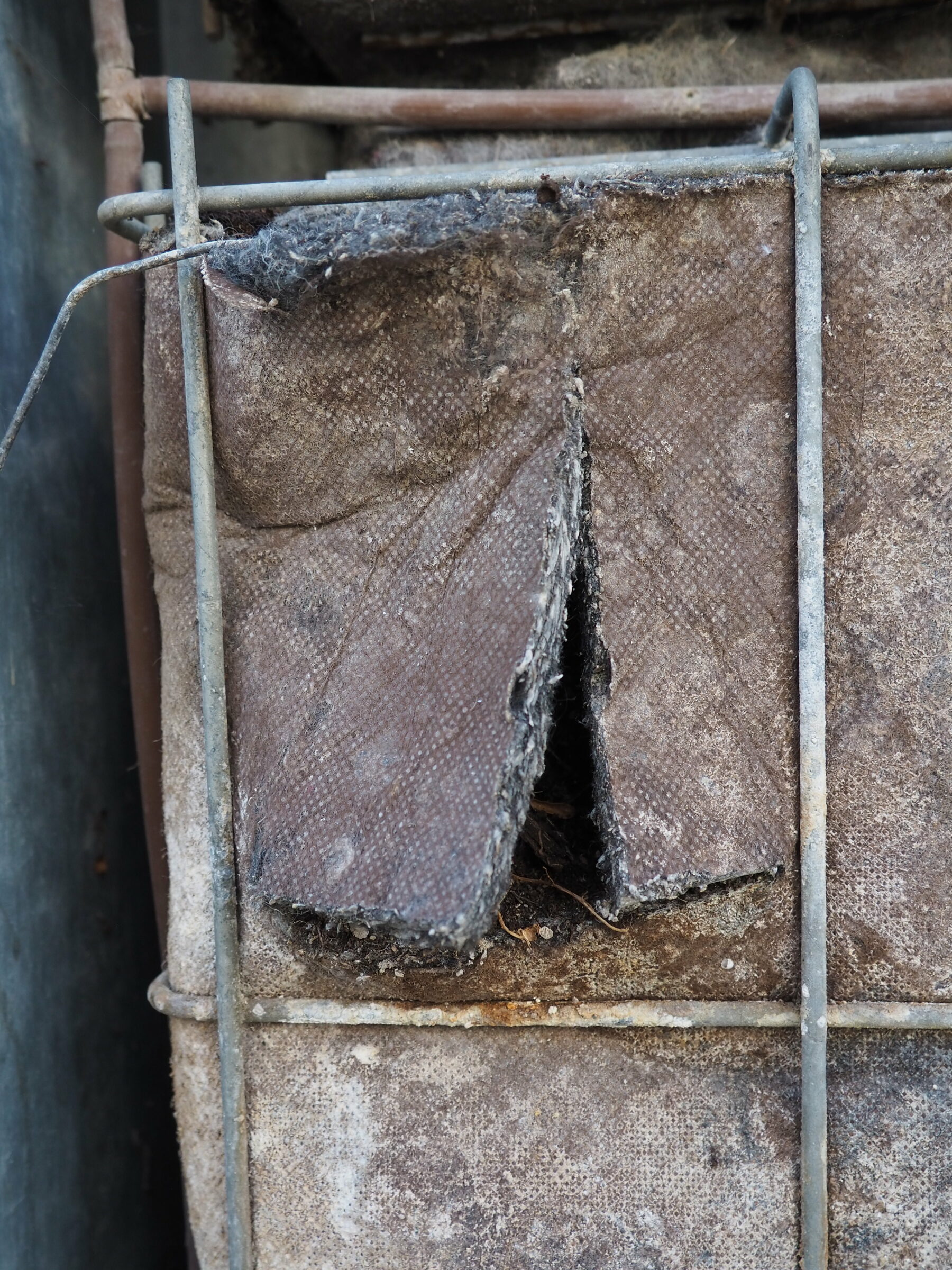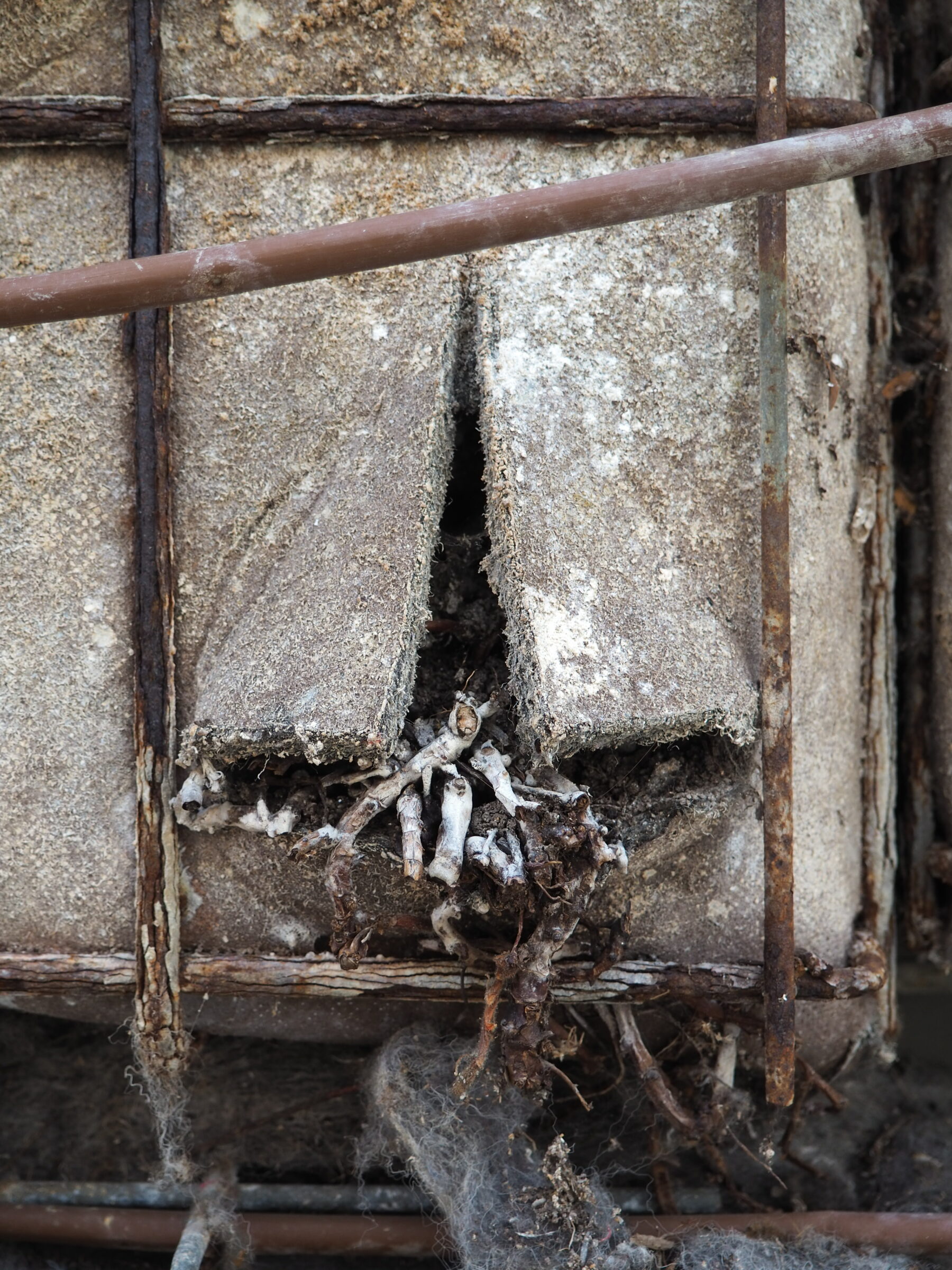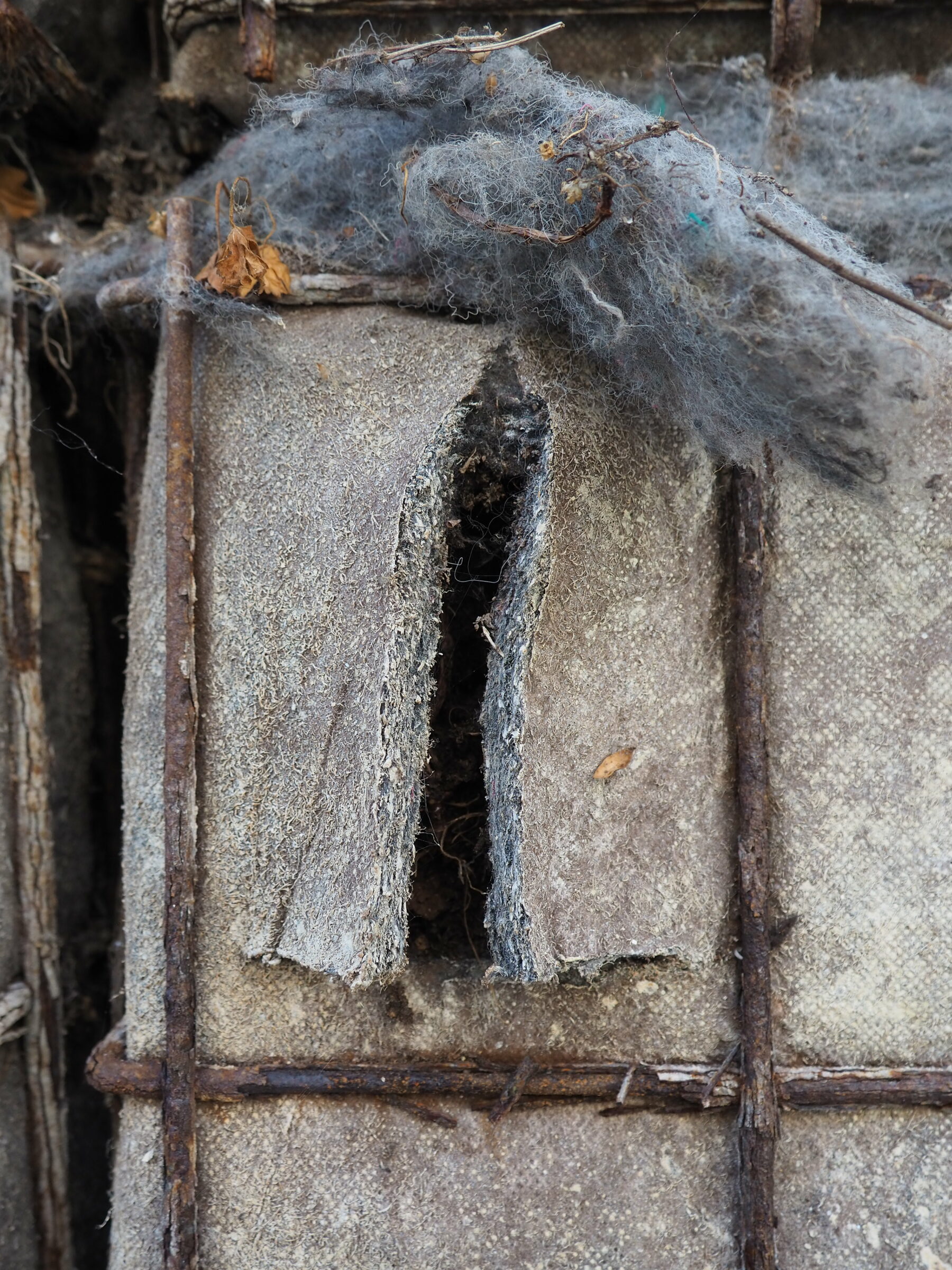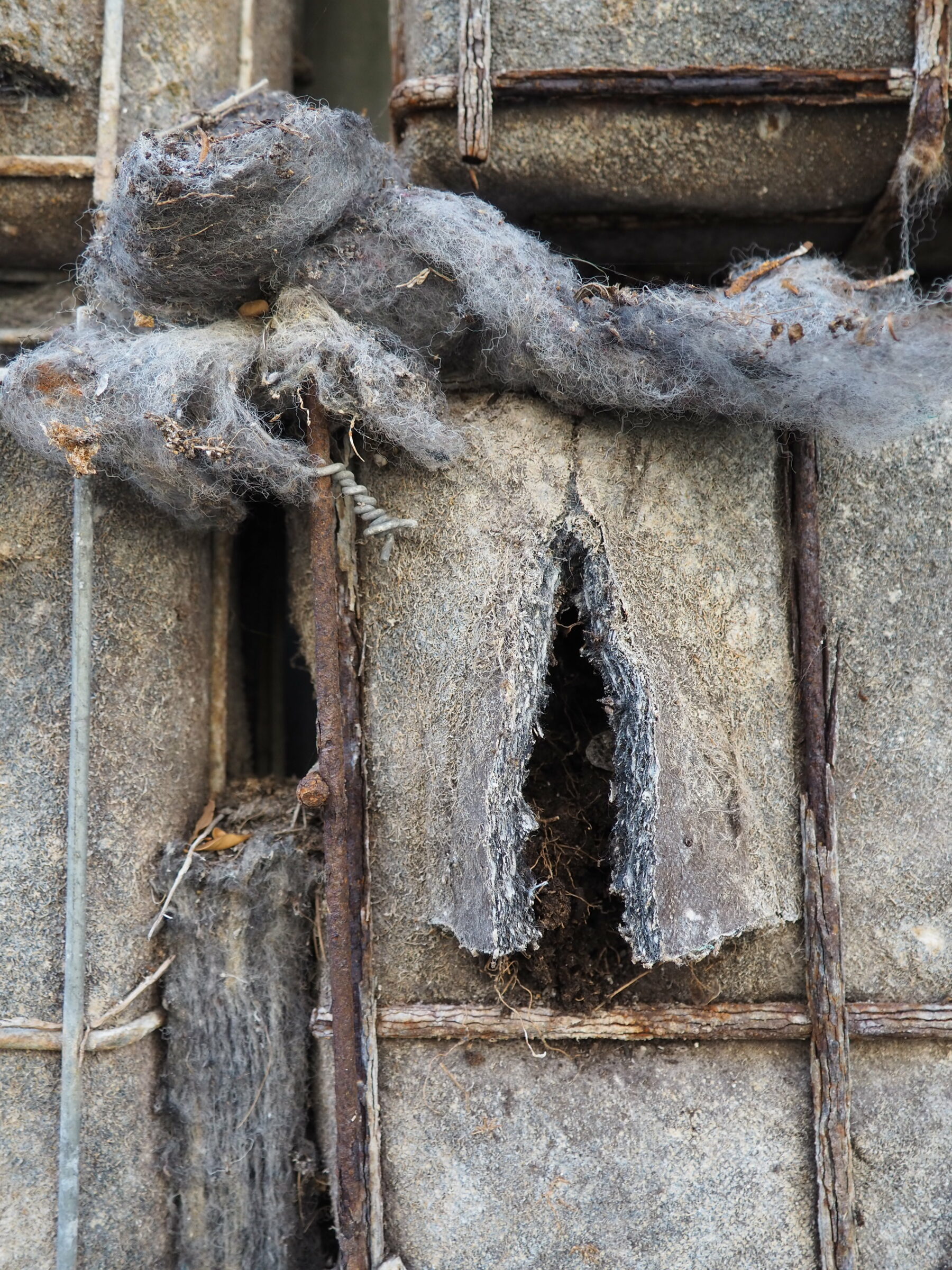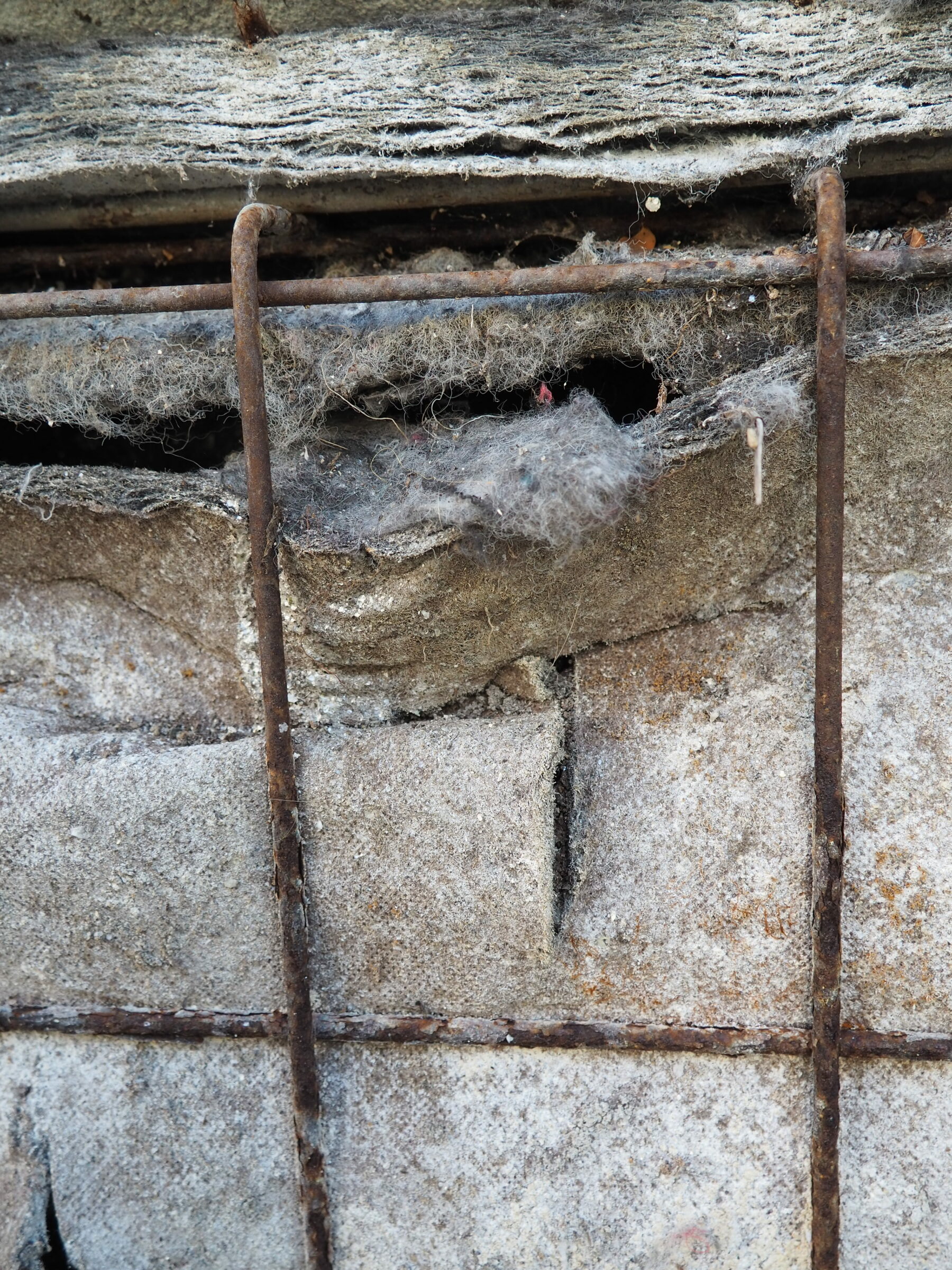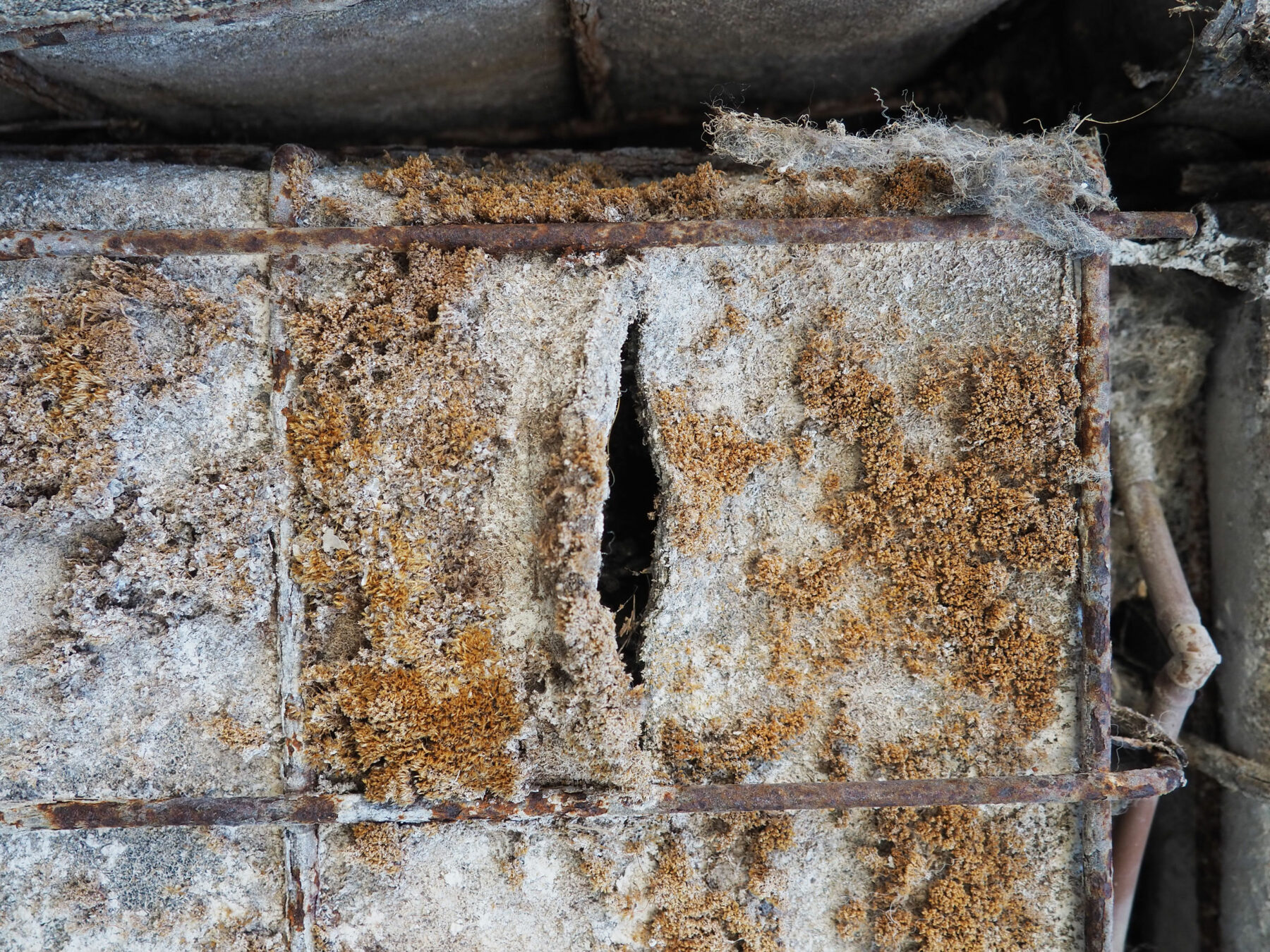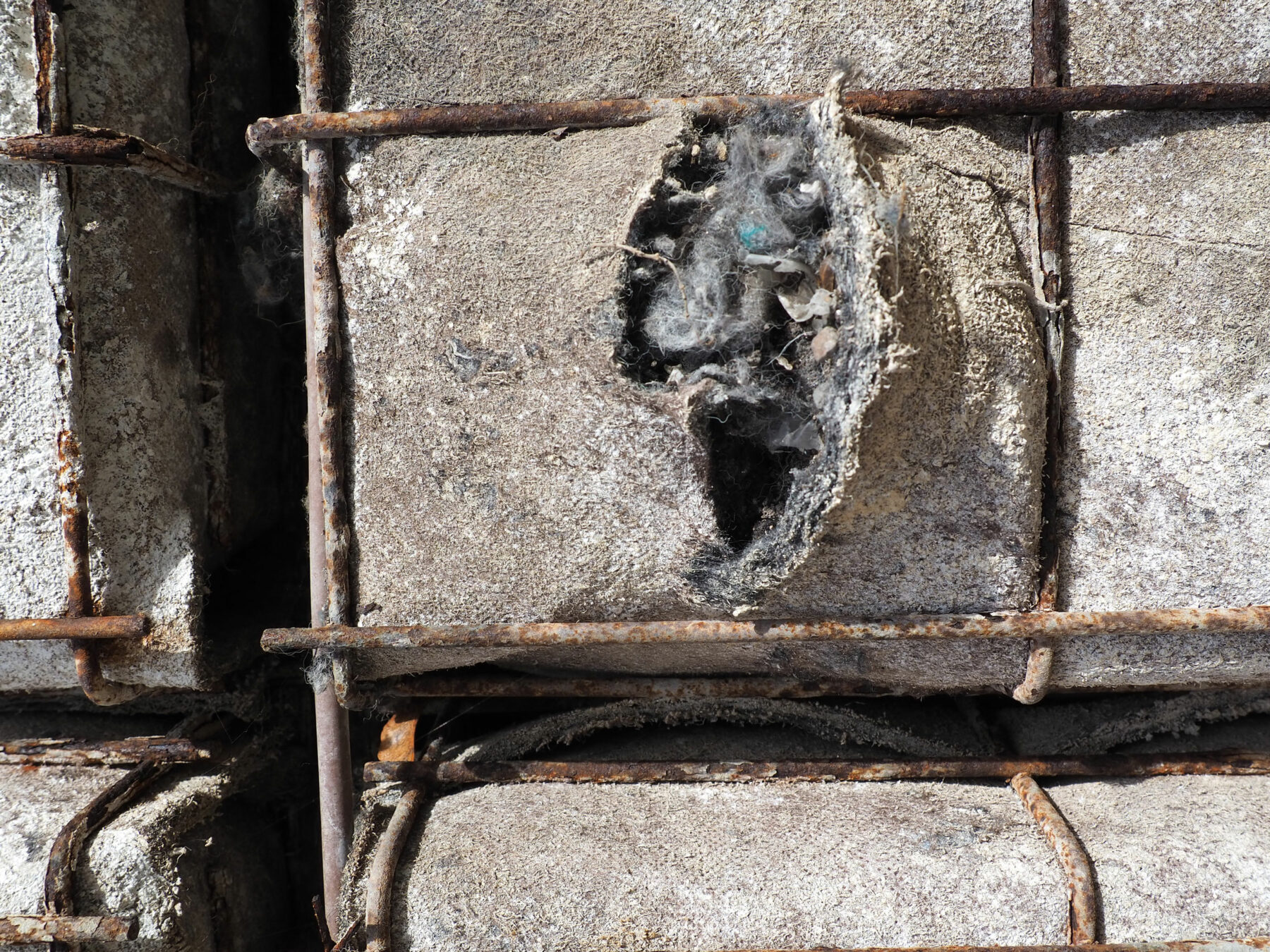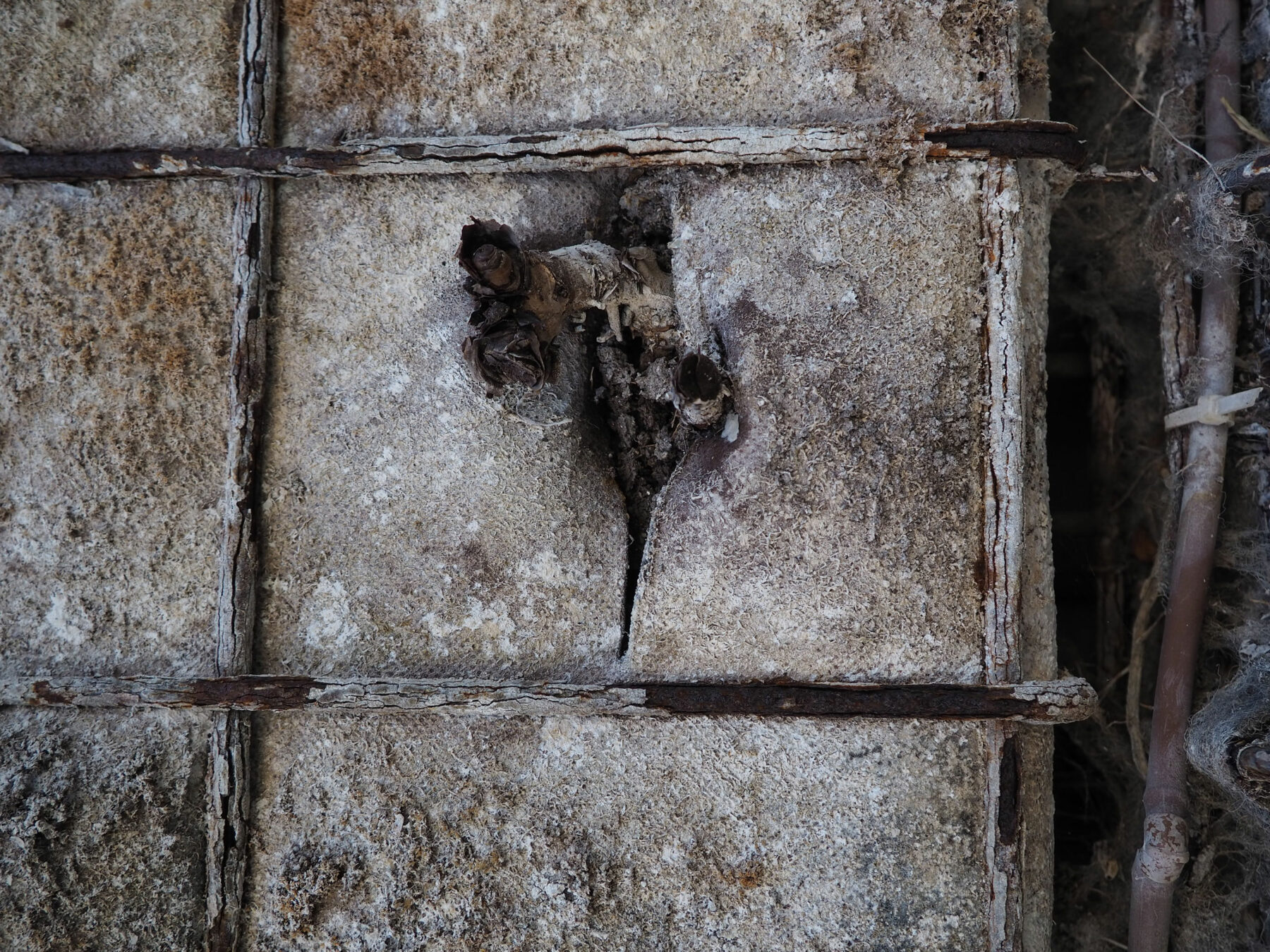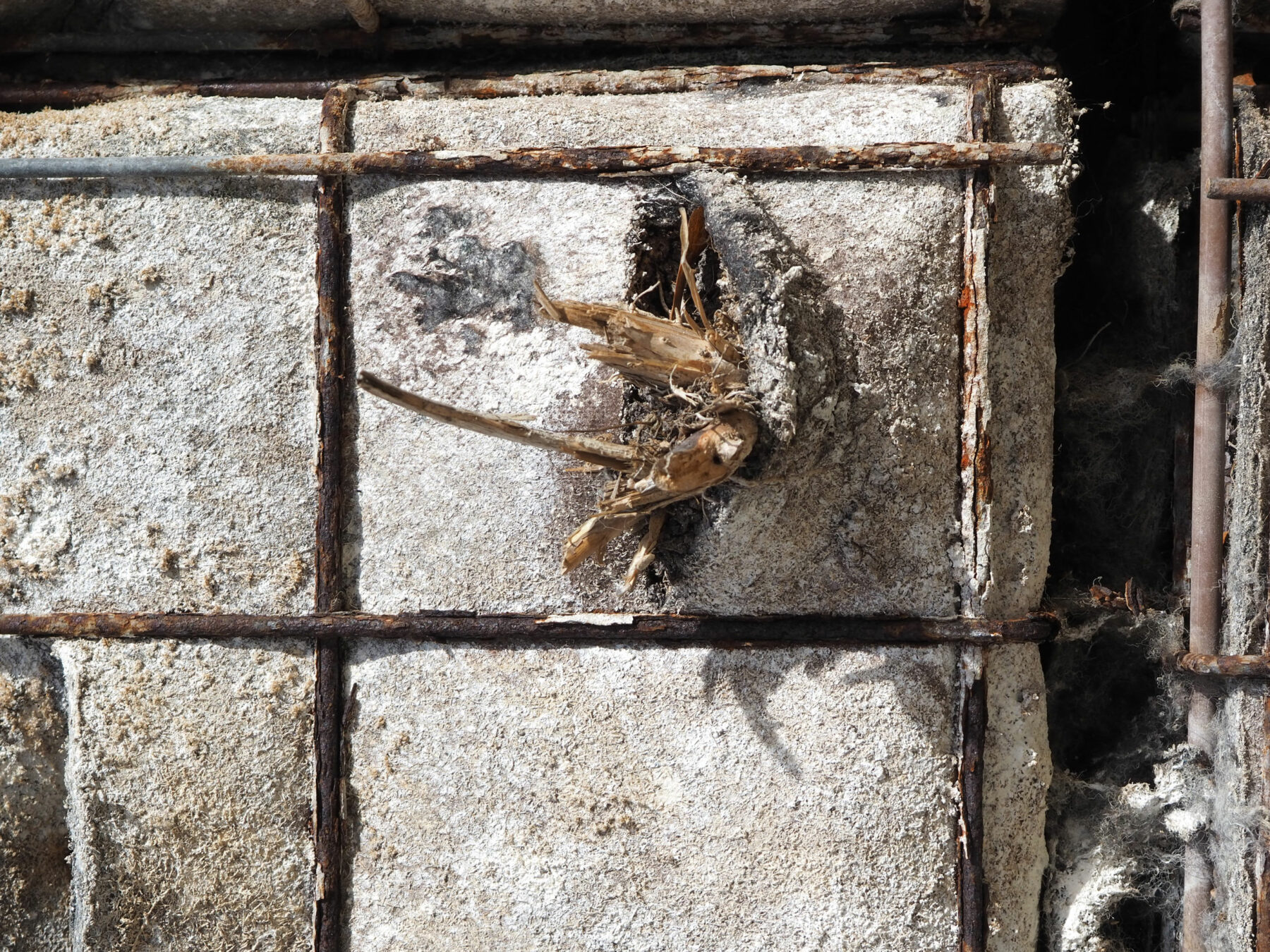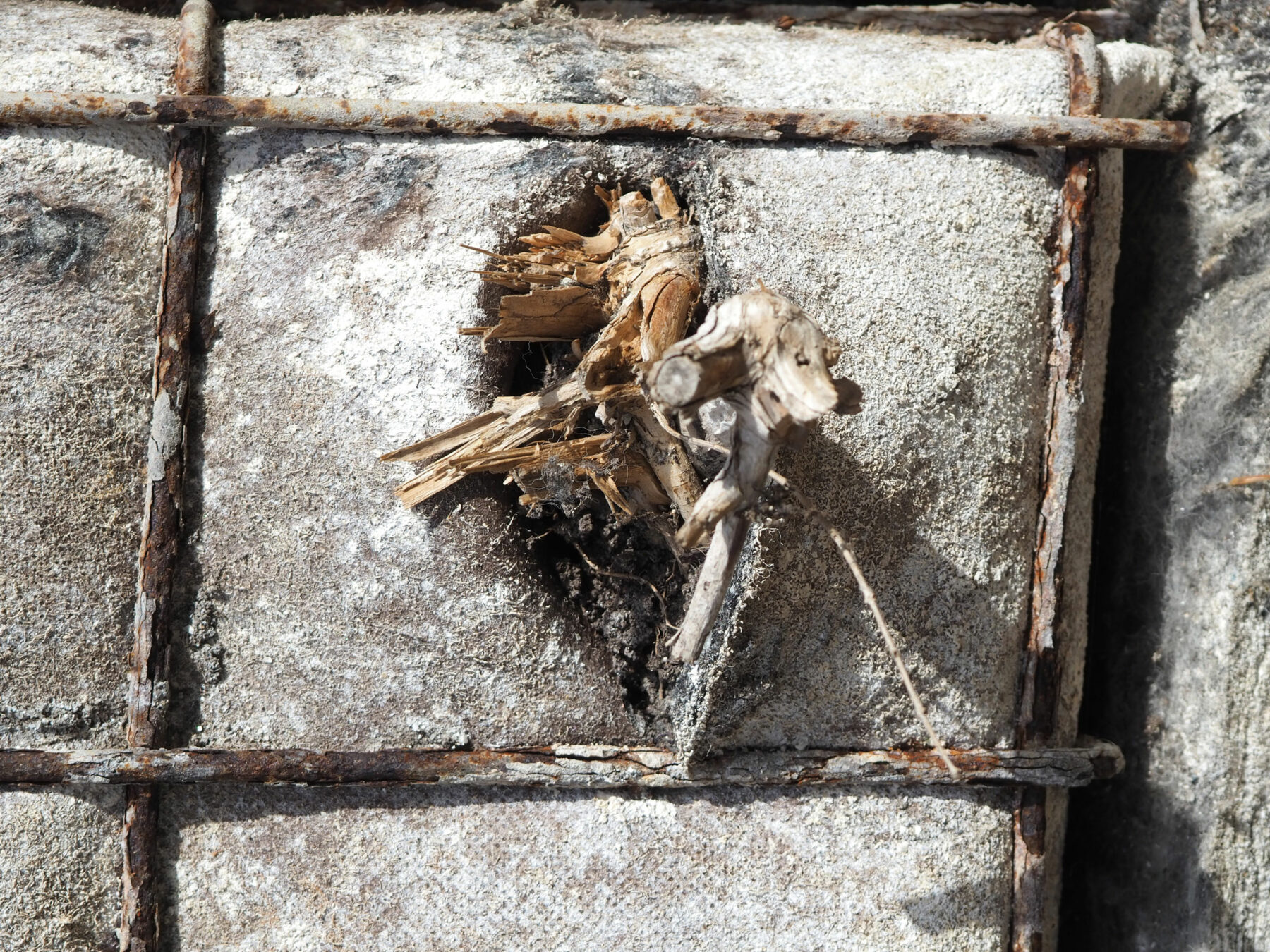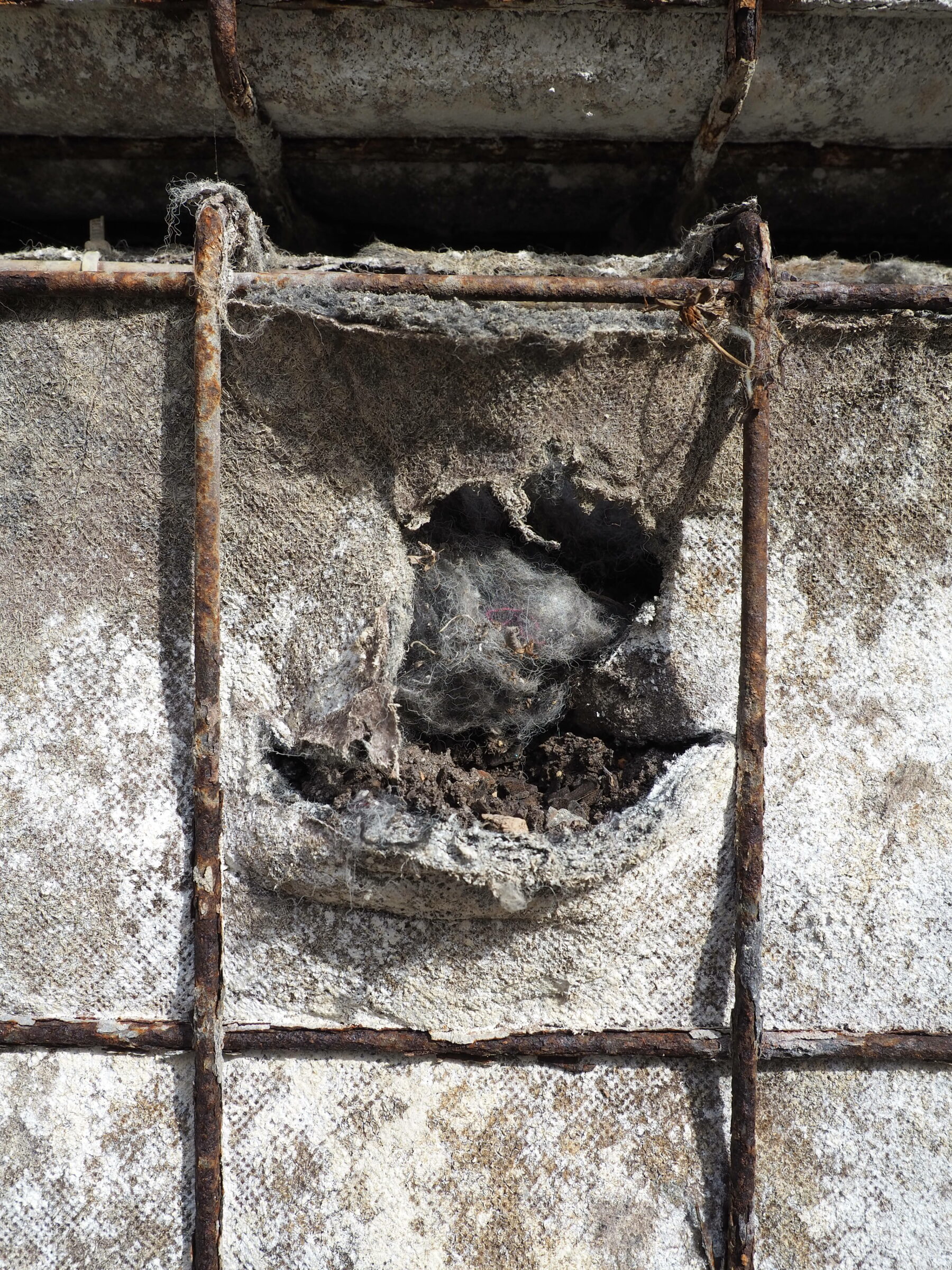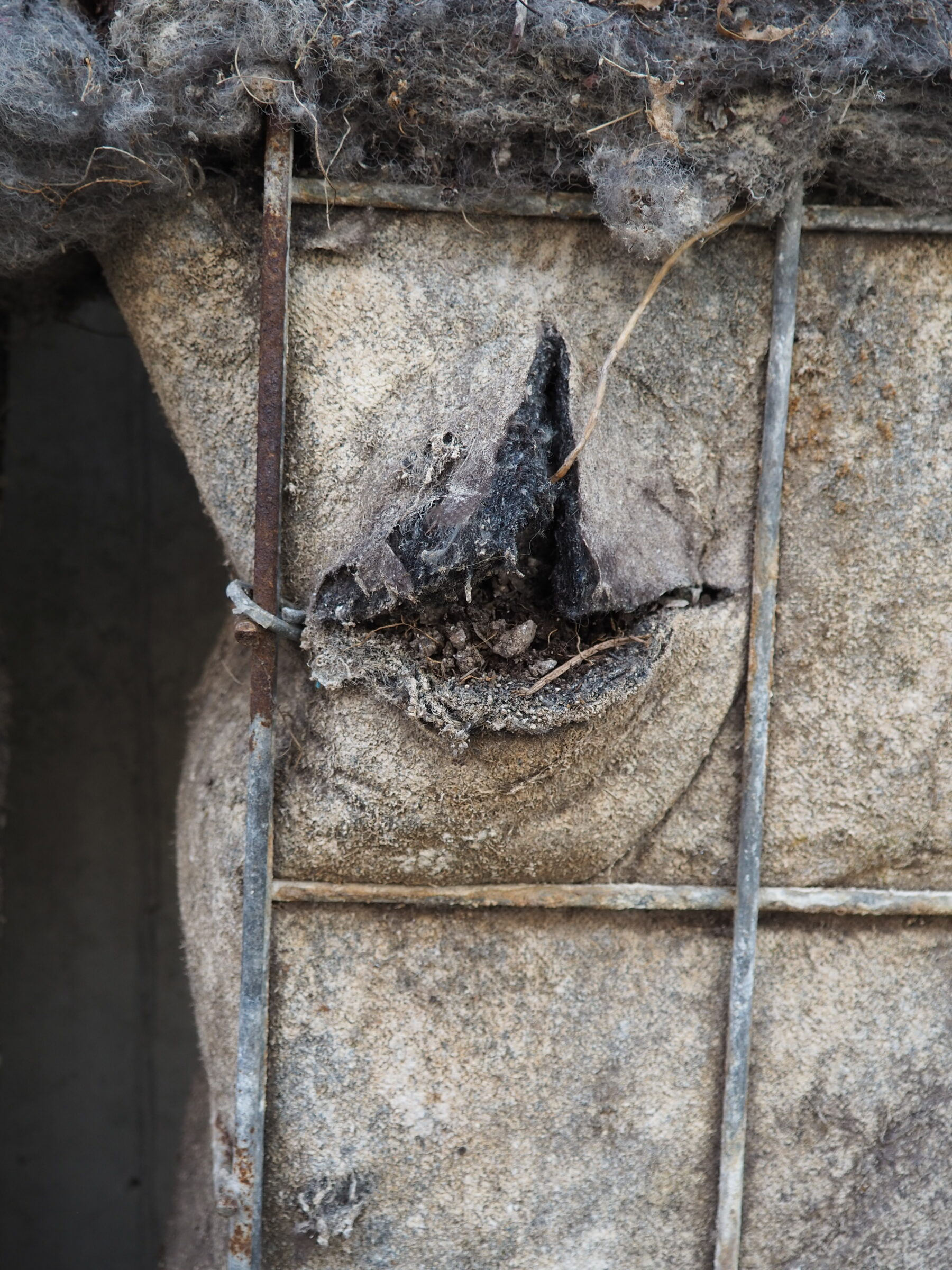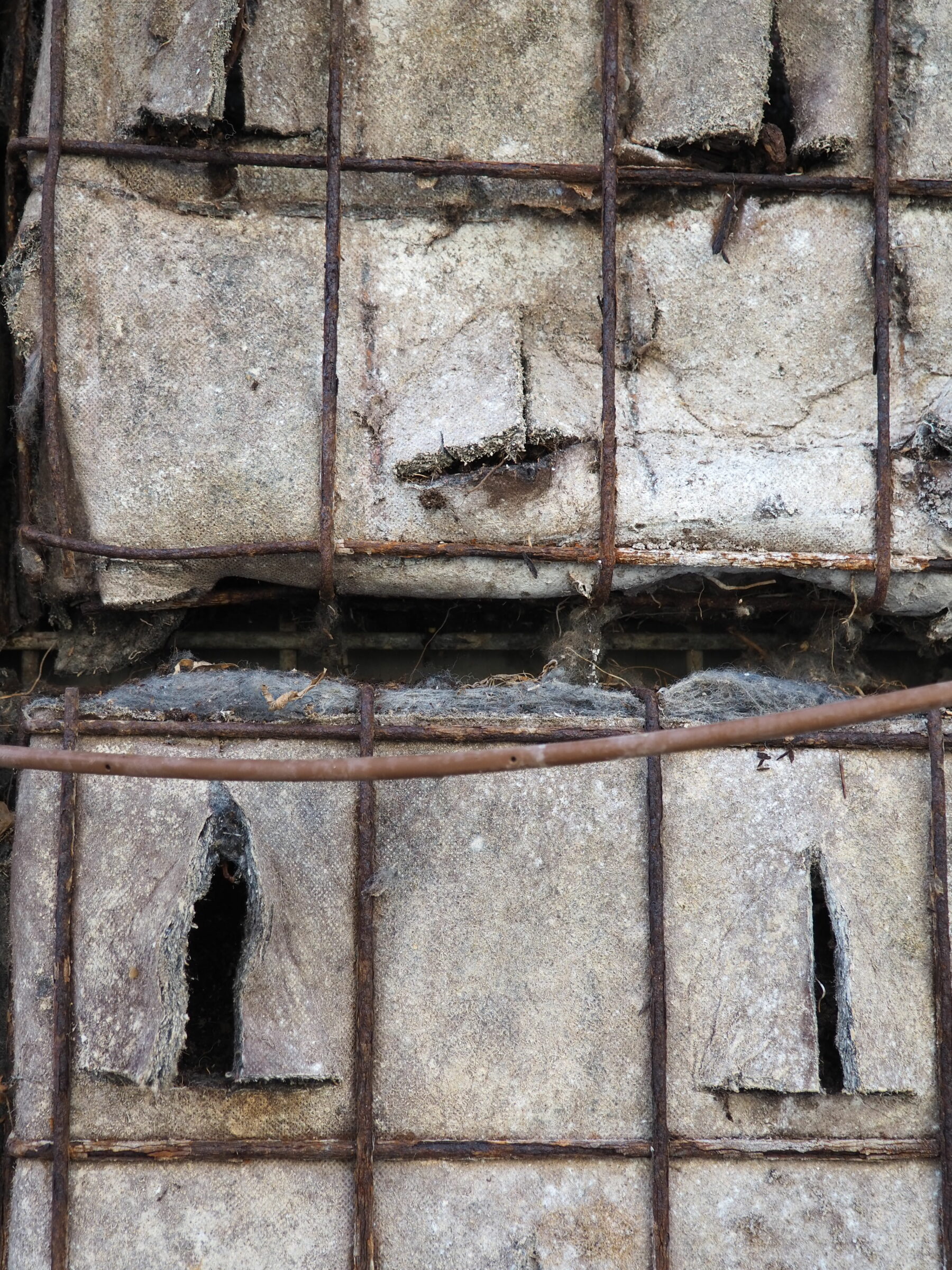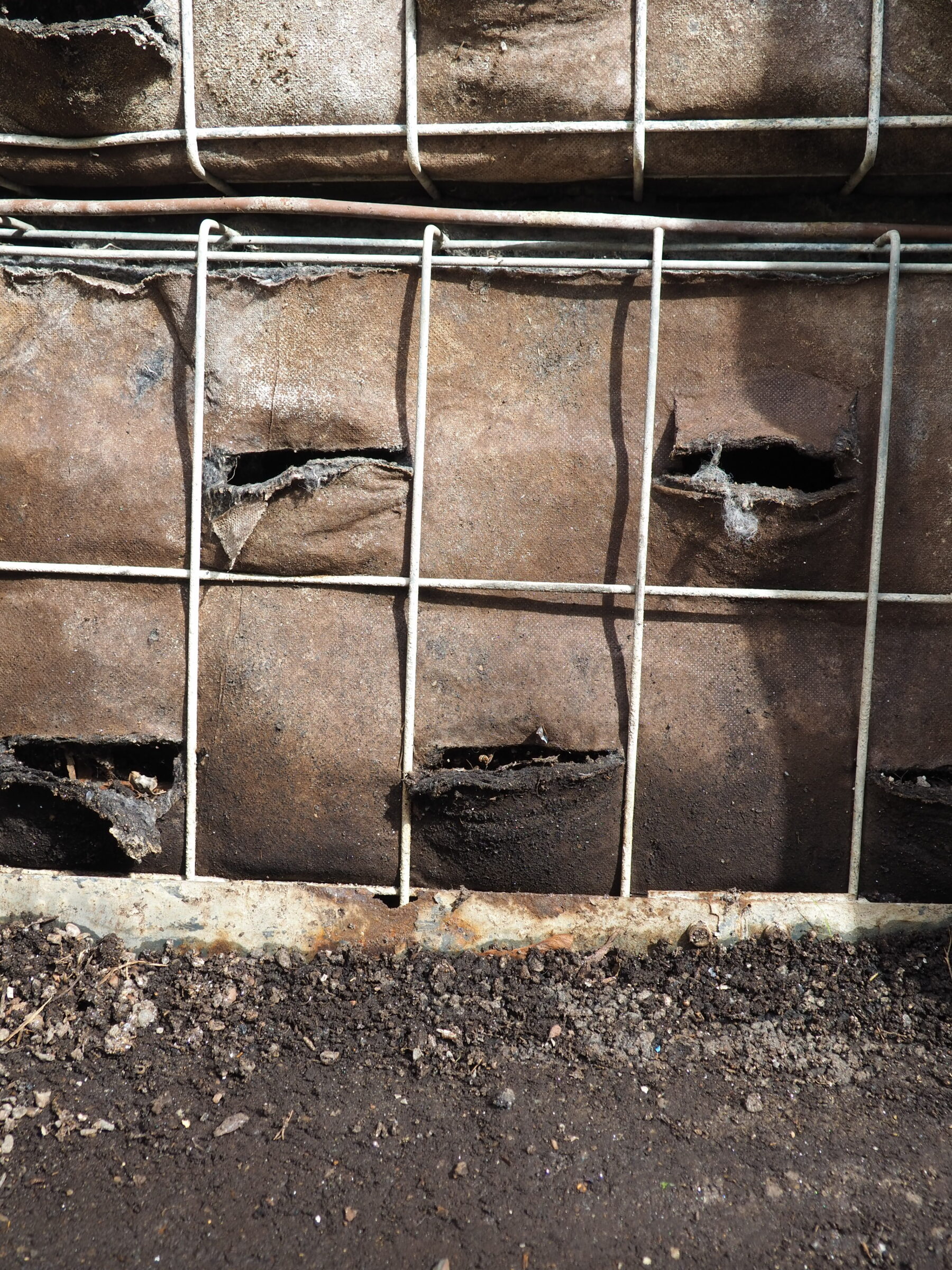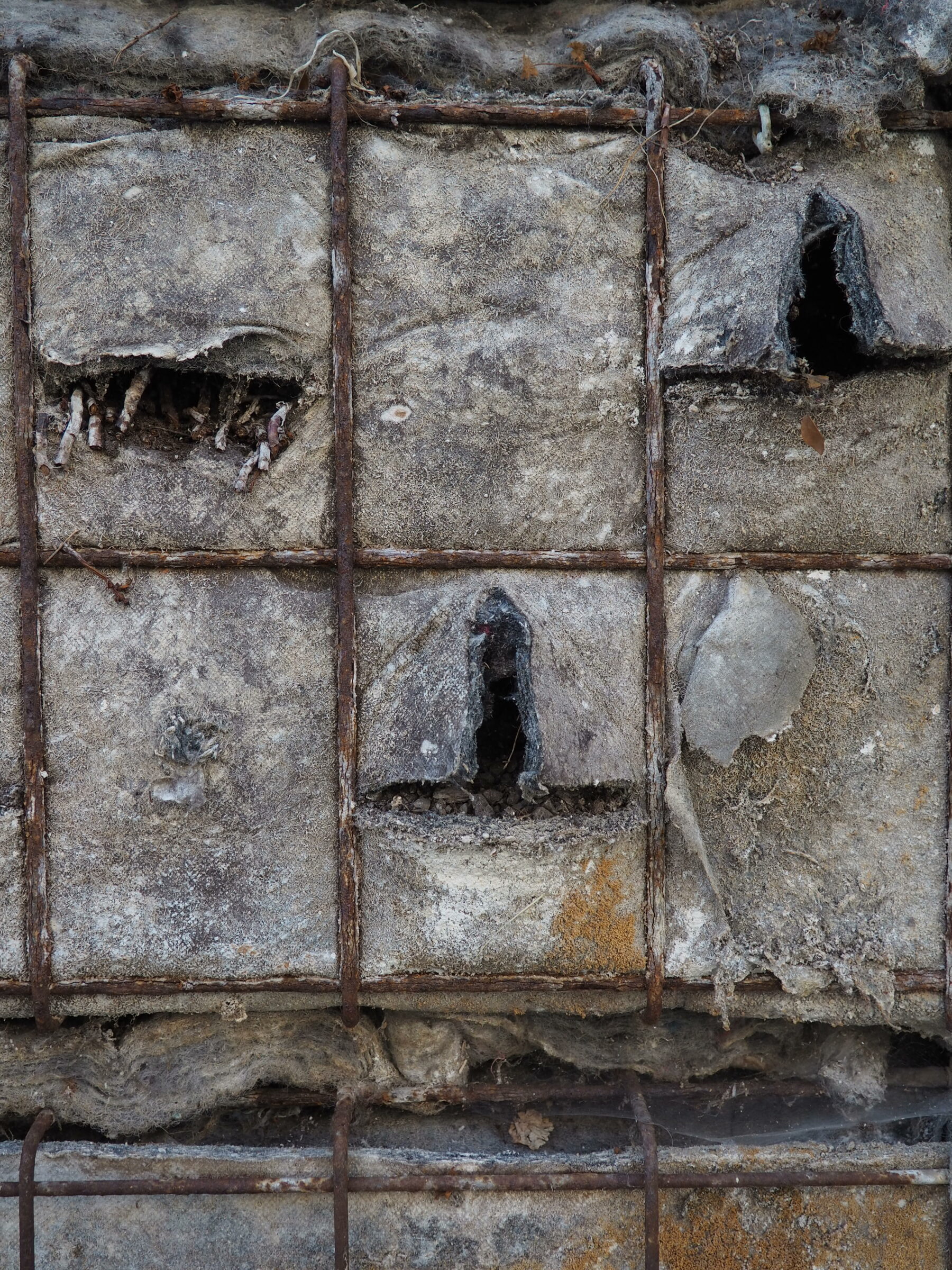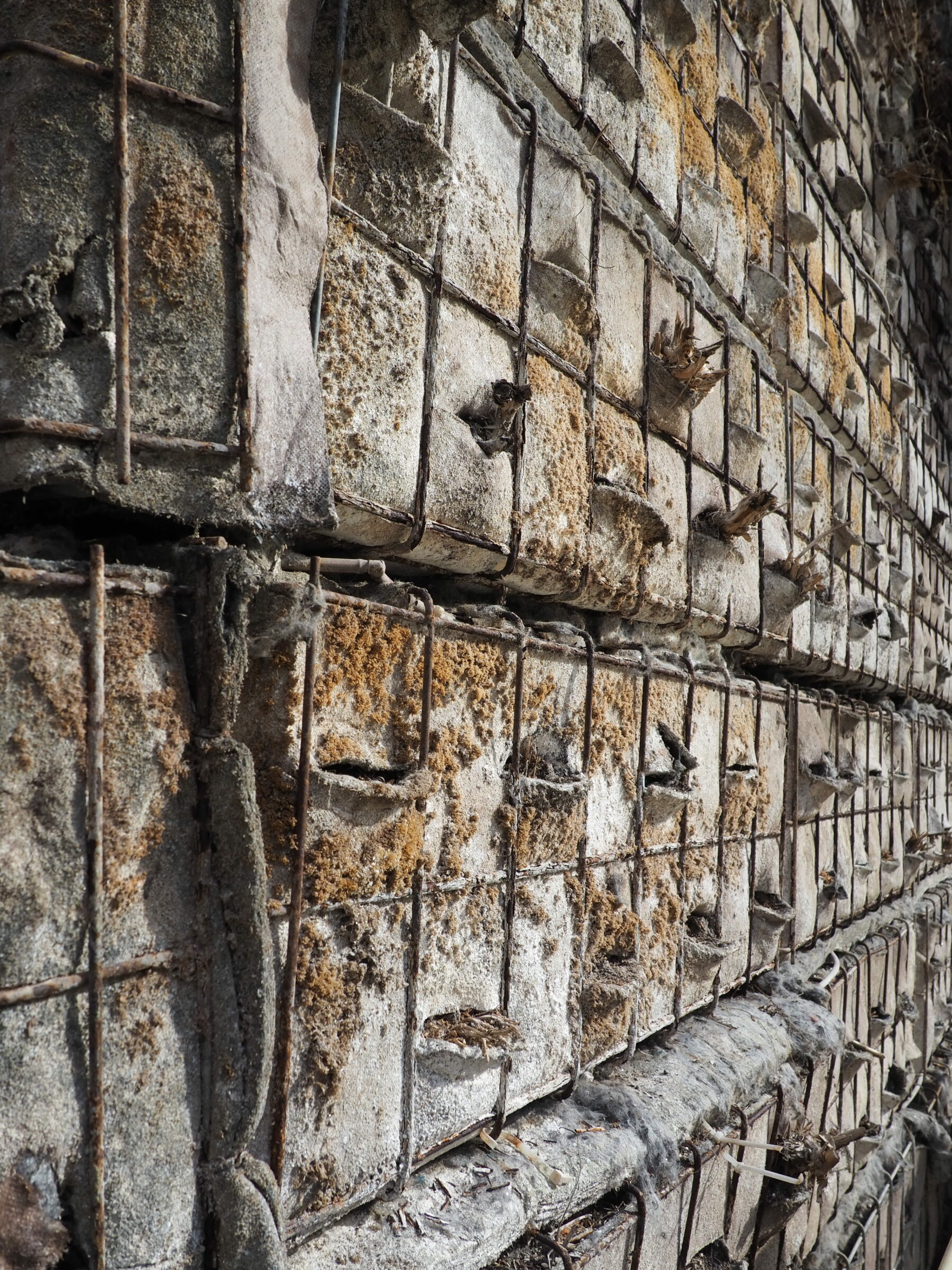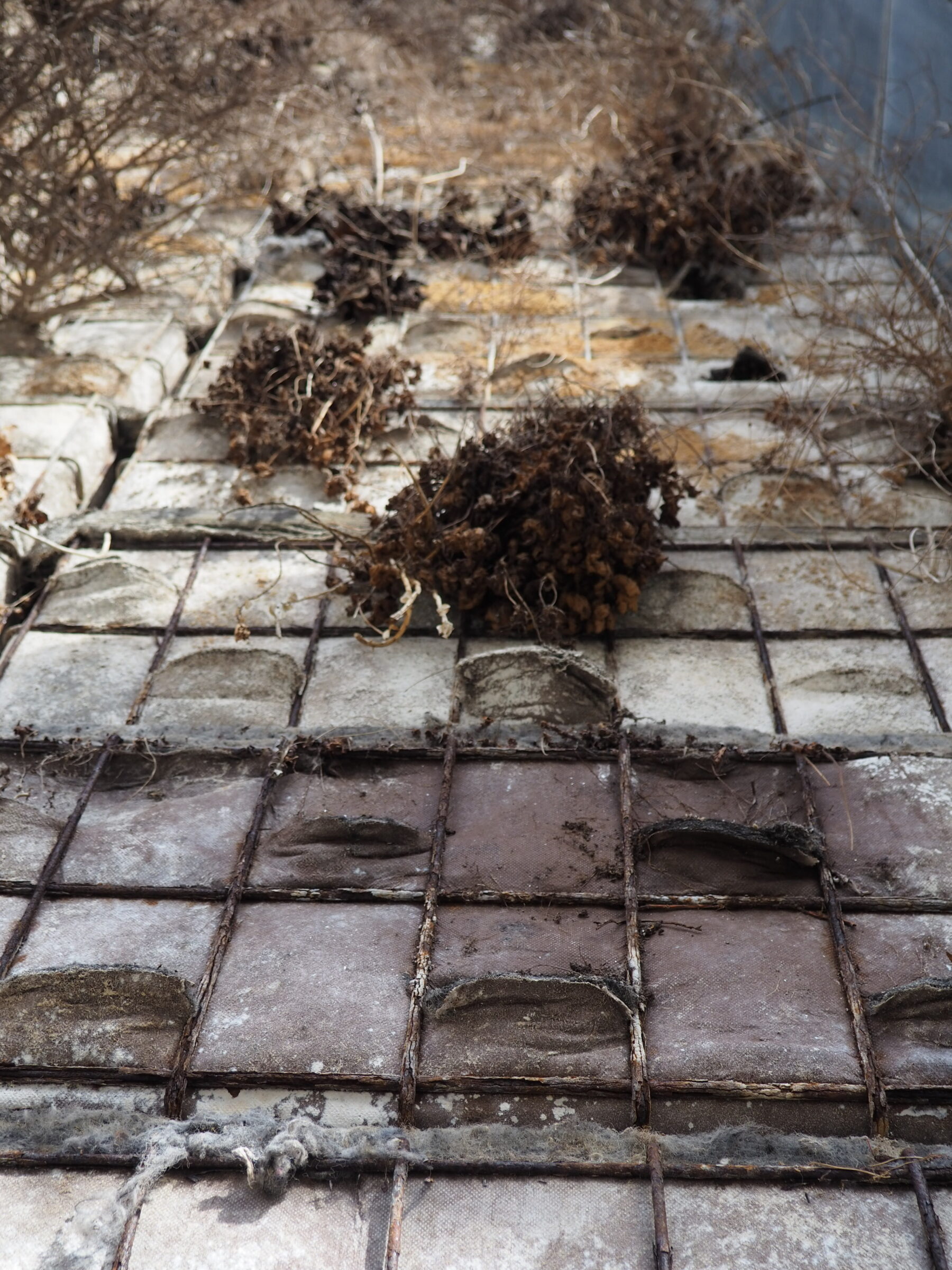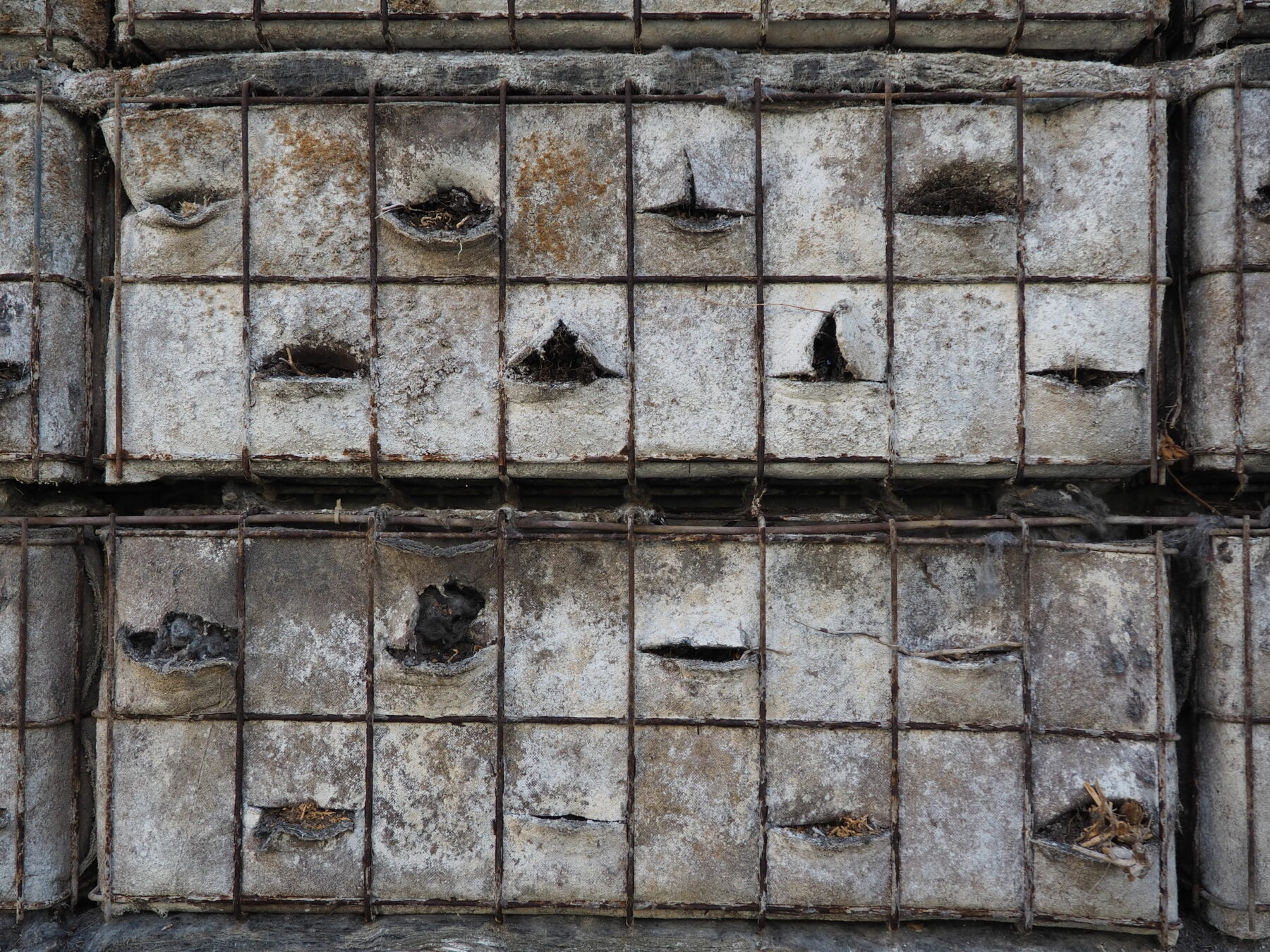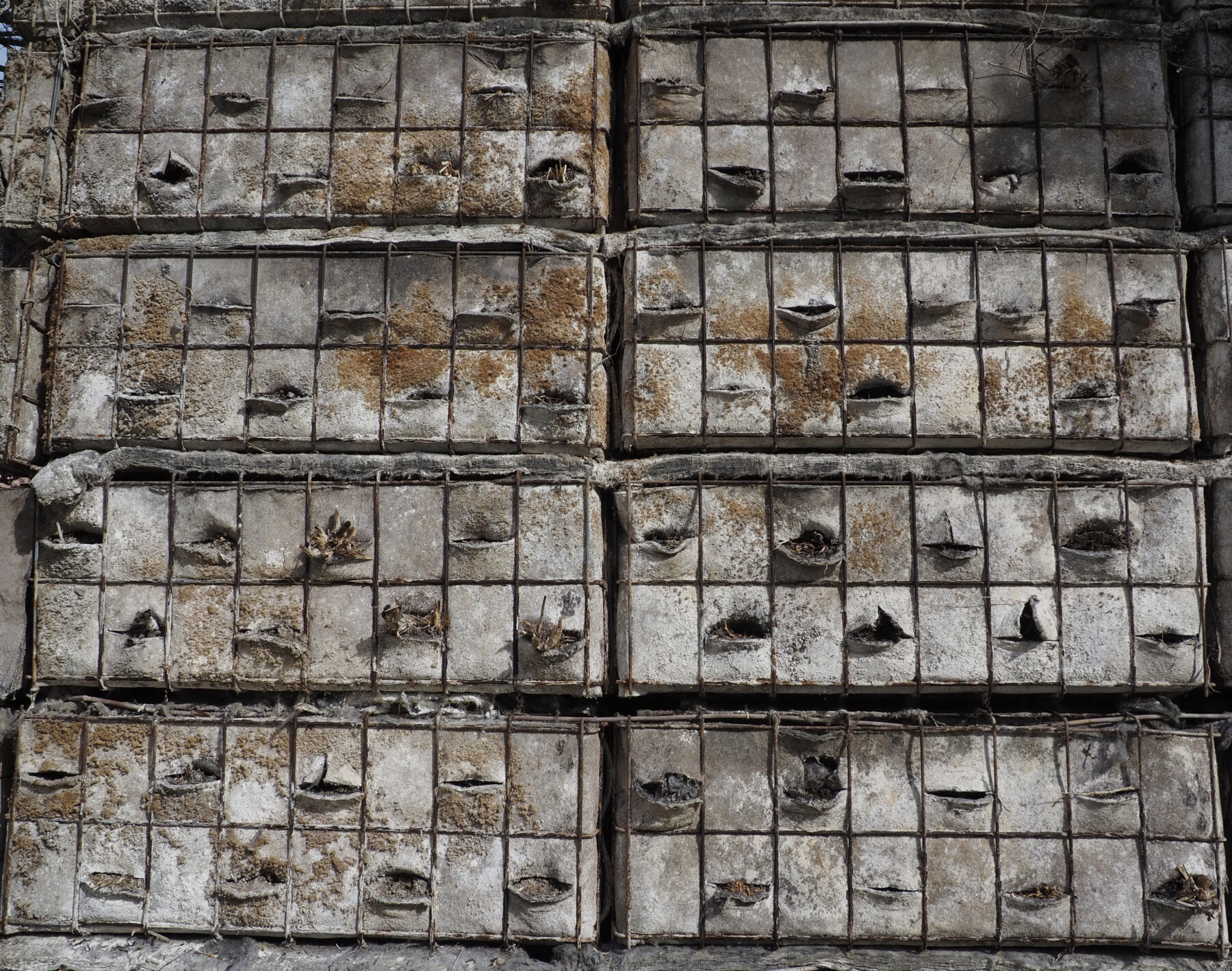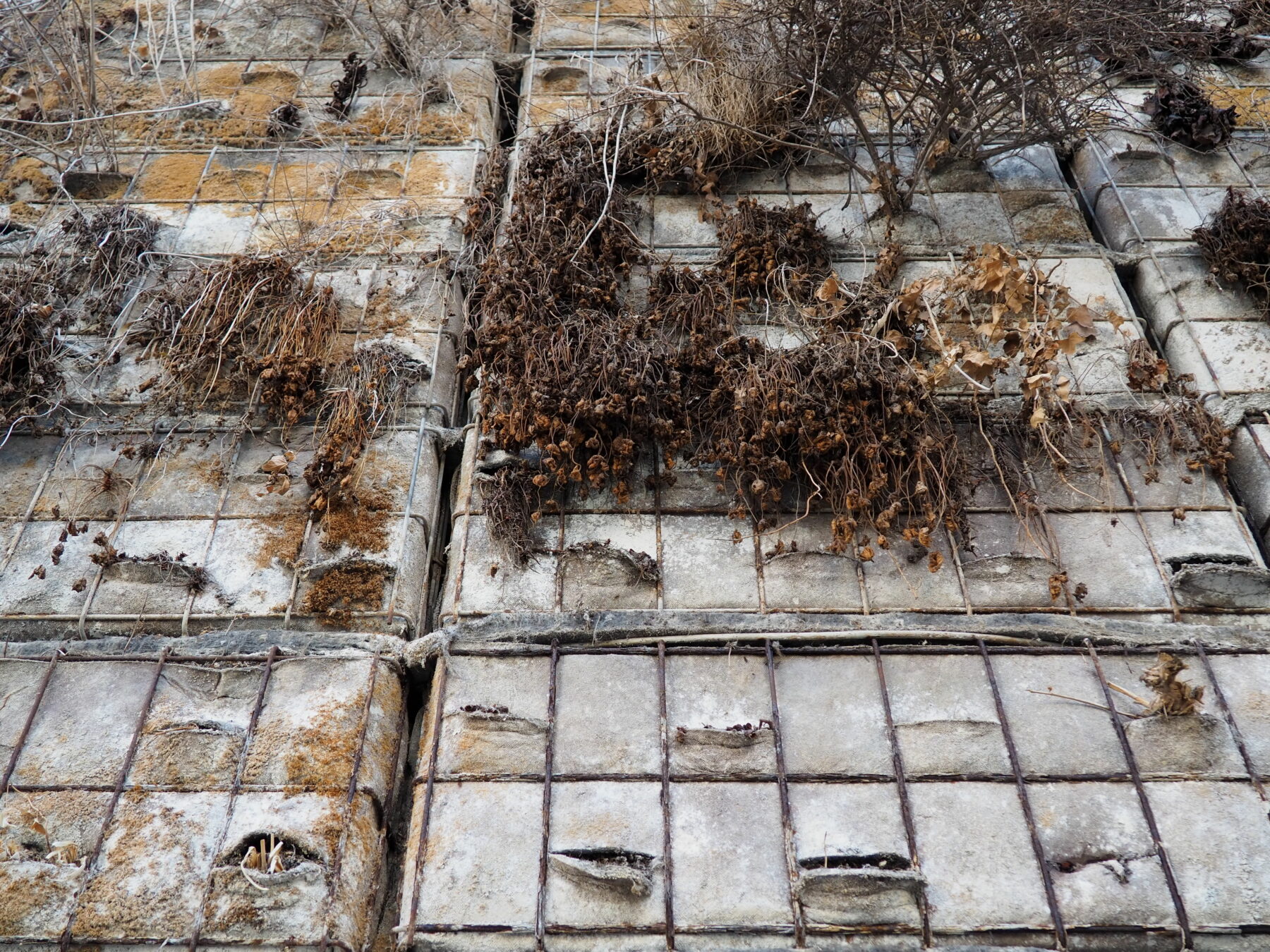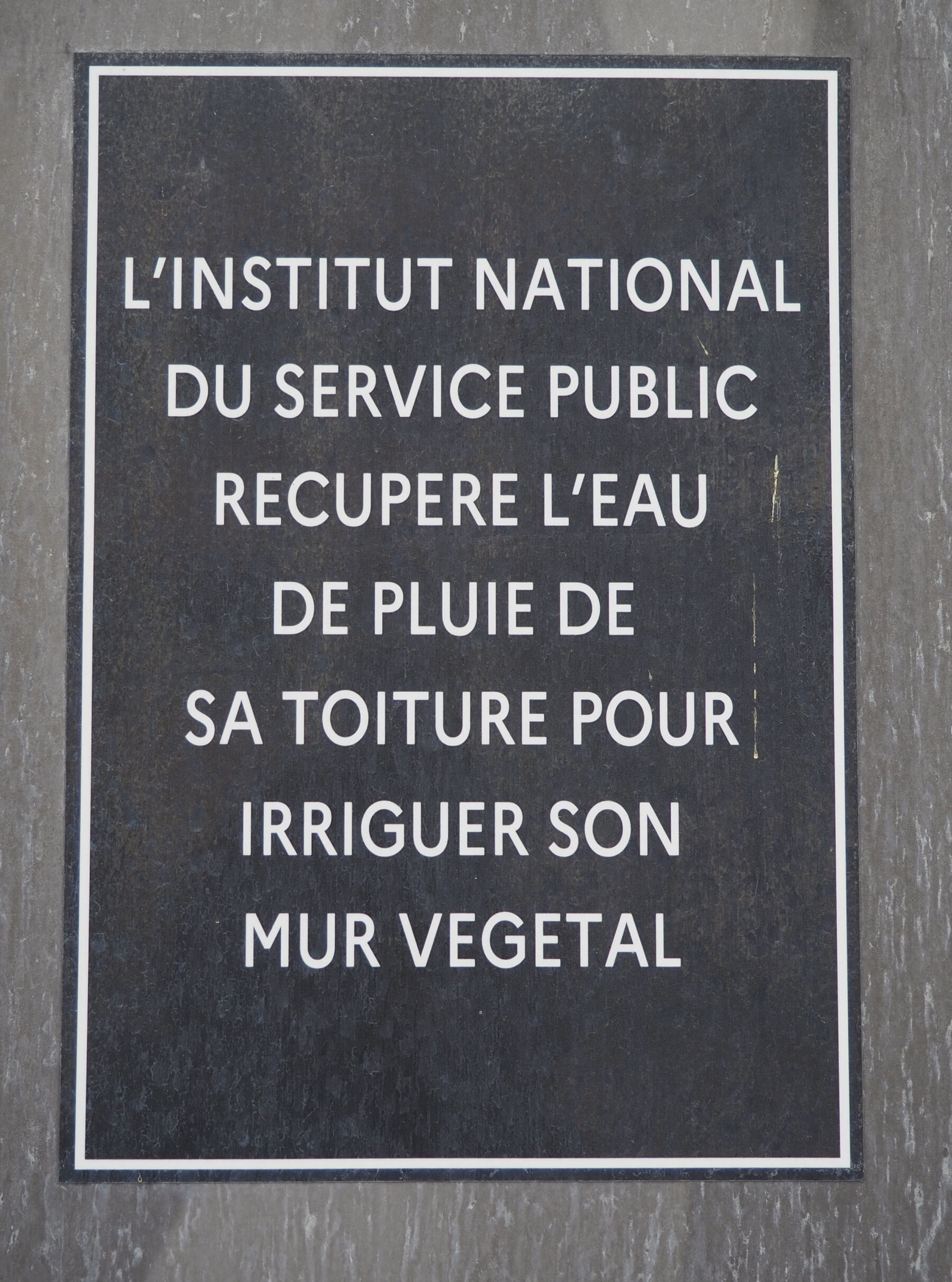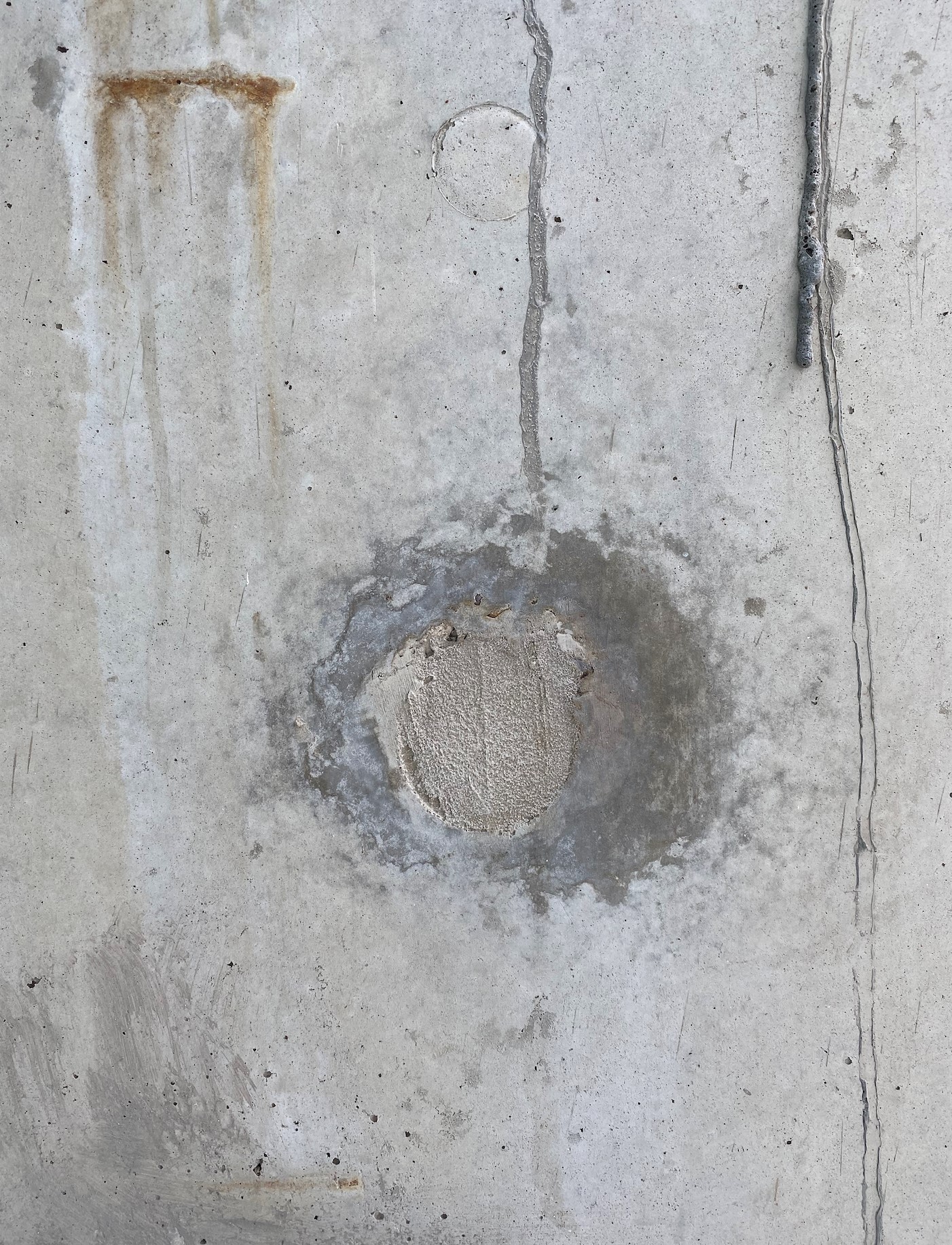Font-Size
Dagmara Kraus
mère nature désirriguée
The INSP building in Strasbourg is home to a striking wall that is part of the latest architectural endeavours to effectively green the city. The plants growing on it were originally supposed to be watered with the help of rain. However, because of a lack of rainfall over several months, the green wall dried out in the summer of 2023.
I photographed this desolate legacy. Its elements look to me as if they were a series of forcibly exposed female genitals, often giving the impression of violence: disfigured, withered, abject cracked openings, wounded vulvas. Some seem to have been raped; others untouched: nulliparae. Others appear to be in the process of an abortion or stillbirth. When viewed from a distance, one can almost make out a bust here and there, a portrait, a face, sometimes in tears, elsewhere a choir wailing.
Referring to the verb ‘irrigate’, which is written on the plaque on the house and depicted here as simulating versification, I have created a neologism in the title of the work. In French, the infinitive of the verb is ‘irriguer’ (être irrigué(e) also means ‘to be supplied with blood’). The negation of the verb using the prefix ‘dés-‘ suggests further connotations of the word désir, created when forming the word. The panel text is also sprinkled with homophones. RECUPERE L’EAU – to an ear open to homophony – forms ‘perd l’eau’, ‘loses water’. And ‘perdre les eaux’ refers to the prenatal loss of amniotic fluid.
Mother Nature is the one whose mistreated vagina – and this is where the Anti-Courbet comes into play – will soon no longer be an ‘Origine du monde’.
Strasbourg, Rue Sainte Marguerite, Institut national du service public
09·2023 / 03·2024
